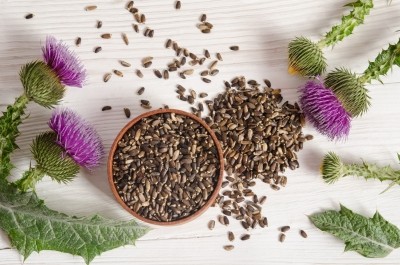BAPP puts out adulterated materials procedure for final review

The document, called “Best Practices Contract Language and Standard Operating Procedure (SOP) Templates for the Disposal/Destruction of Irreparably Defective Articles,” has been put together by the Botanical Adulteration Prevention Program. BAPP is a cooperative venture of the American Botanical Council, the American Herbal Pharmacopoeia and the National Center for Natural Products Research at the University of Mississippi.
Getting bad material off market
The goal of the SOP is to make sure that defective material that cannot be remediated either for technical or economic reasons must be destroyed, instead of returning the material to the supplier. The dirty little secret of the industry over the years has been that at least some of this adulterated material is recycled back into the supply chain to eventually be sold to a less demanding buyer. The material can be adulterated in several ways including being understrength or having different botanical species substituted for the target one. These forms of adulteration can be either intentional or inadvertent, but in either case will result in a finished dietary supplement that is less efficacious than advertised or is essentially worthless.
Signing on to the SOP as part of a supply contract would bind a supplier to stand by a promise to supply material that passes muster, and if it doesn’t, to agree have it destroyed if it can’t be fixed. And the cost of that, as well as the cost of the loss of the material, would be borne by the supplier. Supply contracts have as a matter of course including specifications, but up to now the disposition of material that doesn’t clear that bar has been less than clear cut.
New definitions, third party NDA, FAQ section added
BAPP said it received 106 substantive comments in 2019 from industry stakeholders on the original contract and SOP and related forms and templates, which were used to inform this revised draft. Spearheading the effort to refine the document’s legal language was Michael Levin, principal of the legal consulting firm Health Business Strategies.
“Among the things we included is a third party NDA for dispute resolution,” Levin told NutraIngredients-USA. “We realized in the event of a conflict between the buyer and seller over whether an ingredient was truly irreparably defective we could facilitate the resolution of that.”
“In addition there were 15 definitions that were expanded or modified in the terms section of the contract. And perhaps the most helpful change is the addition of an FAQ (frequently asked questions) section,” he added.
Levin said as part of the revision process the document has been reviewed by individuals still employed by FDA as well as past Agency employees. The response was positive, he said.
“The hope is that this will become a standard best practice document that will be implemented in all supply contracts. If the industry adopts this as a best practice it will only increase the impression that the industry is trying to do the right thing,” Levin said.
Where to submit comments for final draft
Qualified industry stakeholders can download the document here and submit their comments. BAPP is defining a ‘qualified stakeholder’ as a buyer, supplier, analytical lab, expert consultant, attorney, regulator, or industry association. As the document is nearing its final form and is highly technical, BAPP is not accepting comments from people outside this circle. Levin said comments will be accepted through mid-December with a final completion target set for January.
“We are inviting input from a wide array of stakeholders to shape these final tools for widespread industry adoption to help solve a known supply chain issue that sometimes occurs,” said Mark Blumenthal, founder and executive director of ABC and director of BAPP. “Implementing these proposed best practices contract and SOP templates represents a strong measure by responsible industry members to enhance their ability to more effectively control the ingredient supply chain. The SOP helps to ensure that consumers can purchase properly labeled herbal products with authentic ingredients.”
Fulfilling the promise
Blumenthal said the SOP will help fulfill the promise inherent in the group’s name. BAPP has published dozens of bulletins, lab guidances and other documents laying out the adulteration occurring within the industry and how to find it. Now he said the organization can help put concerned manufacturers on solid enough legal ground that they can do something about it.
“Implementing these proposed best practices contract and SOP templates represents a strong measure by responsible industry members to enhance their ability to more effectively control the ingredient supply chain. The SOP helps to ensure that consumers can purchase properly labeled herbal products with authentic ingredients,” he said.









